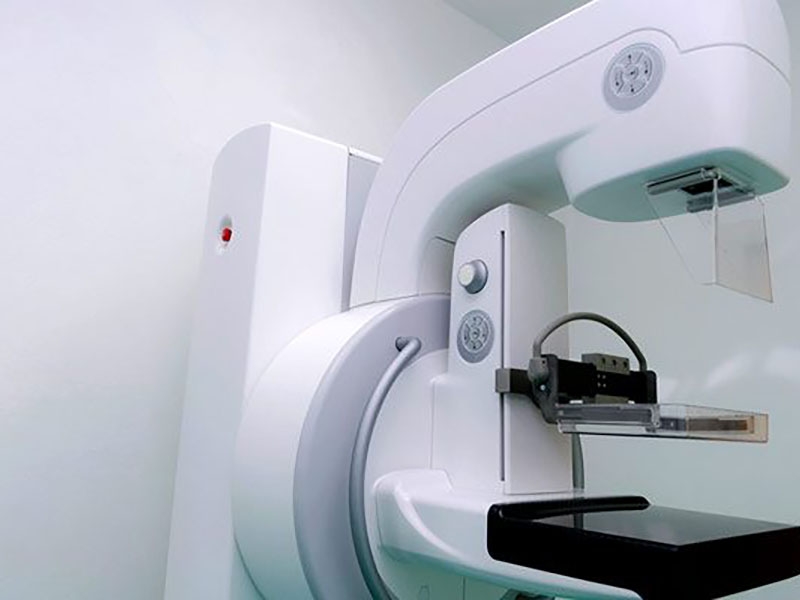
Mammogram
Watch our video about Mammogram
What is a Mammogram?
A Mammogram is a specialised X-ray examination designed to capture detailed images of breast tissue. It is one of the most effective tools for detecting abnormalities, such as lumps or calcifications, that may indicate breast cancer or other conditions. This non-invasive procedure is a cornerstone of breast health screening and early detection.
At Clinic Consultation, we offer high-quality mammograms using advanced imaging technology, ensuring accurate results and patient comfort. Regular mammograms are vital for monitoring breast health and detecting potential issues early, when treatment is most effective.
What is a Mammogram Used For?
The primary purpose of a mammogram is to screen for breast cancer, often before symptoms become noticeable. It is also used to investigate abnormalities detected during a physical exam, such as lumps or nipple discharge, and to monitor changes in breast tissue over time.
In addition to screening, mammograms are crucial for diagnosing benign conditions like cysts or fibroadenomas. By providing detailed images of breast structures, this test enables healthcare providers to differentiate between benign and malignant findings, reducing unnecessary anxiety and interventions.
How Does a Mammogram Work?
During a mammogram, each breast is positioned on a flat plate and gently compressed with a paddle. This compression is necessary to spread the tissue evenly, allowing for clearer images while using the lowest possible radiation dose. The X-ray captures detailed images of the breast from multiple angles, which are then analysed by a radiologist.
The procedure is quick, typically lasting 15-20 minutes, and is performed in a private, comfortable setting. At Clinic Consultation, our technicians prioritise patient care, ensuring minimal discomfort and clear communication throughout the process.
What Are the Types of Mammograms?
Mammograms are tailored to meet specific diagnostic and screening needs. The main types include:
Screening Mammogram
Conducted as a routine check for women with no symptoms of breast abnormalities. It typically includes two X-ray images of each breast and is essential for detecting early signs of breast cancer.Diagnostic Mammogram
Used to investigate specific concerns, such as a lump, pain, or unusual findings from a screening mammogram. It involves additional imaging and focuses on a particular area of the breast for a more detailed evaluation.3D Mammogram (Tomosynthesis)
Provides a three-dimensional view of the breast by capturing multiple X-ray images from different angles. This advanced technology improves accuracy, especially for women with dense breast tissue, by reducing false positives and clarifying complex findings.
Each type of mammogram is performed with precision at Clinic Consultation, ensuring that patients receive the most appropriate test for their needs.
What Conditions Can Be Detected Through a Mammogram?
Mammograms are instrumental in detecting a range of breast conditions, including:
Breast Cancer
Identifies tumours or abnormal growths, even in early stages.Fibroadenomas
Detects benign lumps that may feel like solid masses during physical exams.Cysts
Identifies fluid-filled sacs within breast tissue.Calcifications
Spots tiny calcium deposits that can indicate early stages of breast cancer or benign conditions.Breast Density
Assesses dense breast tissue, which may require additional imaging for clear evaluation.Fat Necrosis
Detects areas of dead or damaged fat tissue within the breast.Structural Abnormalities
Identifies unusual patterns or changes in breast tissue architecture.
When is a Mammogram Indicated?
Mammograms are recommended in the following scenarios:
Routine Screening
For women aged 40 and older, or earlier for those with a family history of breast cancer.Lumps or Thickening
To evaluate palpable lumps detected during a self-exam or clinical breast exam.Nipple Discharge
To investigate unusual fluid from one or both nipples.Breast Pain
When persistent or localised pain requires further evaluation.Family History of Breast Cancer
For women at higher risk due to genetic predisposition or close relatives with breast cancer.Abnormal Ultrasound Findings
As a follow-up to clarify results from an ultrasound examination.Post-Treatment Monitoring
For patients who have undergone treatment for breast cancer or other conditions, to monitor for recurrence.
Pre- and Post-Mammogram Care
Before the Procedure:
- Avoid using deodorants, lotions, or powders under the arms or on the breasts, as these can interfere with imaging.
- Wear a two-piece outfit for easier access to the upper body.
- Inform the technician if you are pregnant, breastfeeding, or have breast implants.
After the Procedure:
- Resume normal activities immediately, as there is no downtime required.
- Discuss the results with your doctor to understand the findings and next steps.
- Follow up as recommended for further imaging or regular screenings.
What Are the Contraindications for a Mammogram?
While mammograms are safe for most women, there are a few contraindications to consider:
- Pregnancy, due to potential risks of radiation exposure to the developing foetus.
- Recent breast surgery, which may require alternative imaging methods.
- Active breast infections, as inflammation can affect imaging quality.
- Severe pain or sensitivity that may make compression uncomfortable.
Your healthcare provider at Clinic Consultation will assess your individual situation to determine the best approach.
What Are the Alternatives to a Mammogram?
For women who cannot undergo a mammogram, alternative imaging techniques include:
- Breast Ultrasound: Ideal for evaluating lumps or dense breast tissue.
- MRI (Magnetic Resonance Imaging): Provides detailed imaging for high-risk patients or complex cases.
- Thermography: Detects heat patterns in breast tissue but is less commonly used.
At Clinic Consultation, we ensure that every patient has access to appropriate diagnostic tools tailored to their unique needs.
Book Your Mammogram at Clinic Consultation
Mammograms are a vital tool for maintaining breast health and detecting conditions early. At Clinic Consultation, we combine advanced technology with compassionate care to deliver accurate results and peace of mind. Schedule your mammogram online today and take a proactive step towards safeguarding your health.
Click here to schedule an appointment online